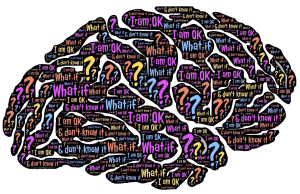Flexibility Focused Queries
Learning Objective
To introduce the use of “Flexibility Focused Queries” as a tool to promote self awareness, critical thinking and problem solving skills for improved decision making processes.
What are Flexibility Focused Queries?
Using Flexibility Focused Queries (FFQ’s) can be a useful technique for engaging in Reflective Practice. FFQ’s are a series of questions that we can ask ourselves in order to critically analyze our actions and decisions. Asking ourselves these types of questions promotes Expansive Thinking.
When deciding on a course of action, discussing options with a group or co-leader, or reflecting on a decision that has already been made and executed, FFQ’s help us consider the “What ifs”, that we may not have considered when we are stressed, overwhelmed, or feeling pressured.
A key characteristics of flexibility focused queries is that they are open ended questions – they tend to start with a “what” or “how”. It can be important not to limit our answers by only allowing one or two possible responses (i.e. “option a or option b” or “yes or no” answers). The point is to train the brain to consider multiple and previously unthought of possibilities. It is a brain expanding exercise. Asking ourselves FFQs is a prime example of System 2 thinking – it requires focus, energy and cognitive engagement.
You can even bring a Flexibility Focused Queries Cheat Sheet (located below) into the field with you for easy access! This way you can build this practice into your decision making toolkit.
You can either use all the questions sequentially or select only the relevant ones for a given situation.
Flexibility Focused Query Questions Cheat Sheet
Recall |
What did you do in that situation? Recall actions, behaviours, and outcomes. |
Cognition |
How many other ways could you have done this?What factors would have made you choose one of these options?What else could have happened? |
Meta-Cognition |
What would you do if…?
|
Queries Breakdown
Recall
The depth of detail we are able to recall about the event shows our level of understanding of the situation, and our actions in relation to that situation. A lack of detail in responses could indicate a need for greater understanding, experience or training.
Cognition
How many other ways… The number of options and details can show a depth of understanding of the situation. The order of the options that are considered can also give us a clue – the more comfortable or familiar options will tend to come earlier. In general, procedural options comes first and later ones need more experience and training to execute. So we get better at answering FFQs as we gain experience and knowledge.
What factors would have… This highlights our capacity to think critically, to think in detail, to consider what factors drove that choice, and our level of situational awareness.
Meta-Cognition
Meta-cognition is essentially the process of examining how you learn and think. Practicing meta-cognition creates the potential for predicting potential future events – it builds our ability to apply learnings to new or novel situations.
Some examples of “What if…?” scenarios include:
-
What would you do if a canoe got blown out into the crossing?

-
What if the group was experienced, what if not?
-
What if you were the lead instructor with a less experienced co-leader?
-
What if you had a different rescue system in place?
-
What if the student became highly anxious?
-
What if they couldn’t swim?
-
What if the conditions were picking up?
-
-
What if there was a large vessel coming?
-
What if there was conflict within the group?
Exercise: Exploring Flexibility Focused Queries
Recall a past event that was stressful.
Remember the event in as much detail as you can, and work through it using Flexibility Focused Queries.
How many other ways could you have reacted or addressed the situation? Remember to think of as many ways as you can – don’t limit yourself to only one or two options.
Think about what else might have happened. Play the “What if..?” scenarios out and examine them.
Conclusion
Using flexibility focused queries as a reflective tool throughout your development as a leader, including in discussions with your peers and participants is highly beneficial. FFQ’s encourage expansive thinking, increasing our awareness of potential solutions and options that can be applied to a wide variety of situations and build Adaptive Expertise.
Remember, when it comes to flexibility focused queries, there are no perfect answers, and no wrong answers. This is practice in System 2 thinking skills, allowing us to explore scenarios and solutions within dynamic parameters without exposing ourselves or our groups to unnecessary risk. The ultimate goal is to train ourselves to think carefully and critically, so that even when we don’t know what to do, we know how to think in order to make better, more conscious (and more sound) decisions.
Checkpoint: Flexibility Focused Queries
Expansive thinking, also known as brainstorming, is all about creating multiple ways to solve a problem or improve a situation.
The ability to conceptually understand developing and changing situations and use expertise built from past experiences and training to amalgamate or create new solutions.


